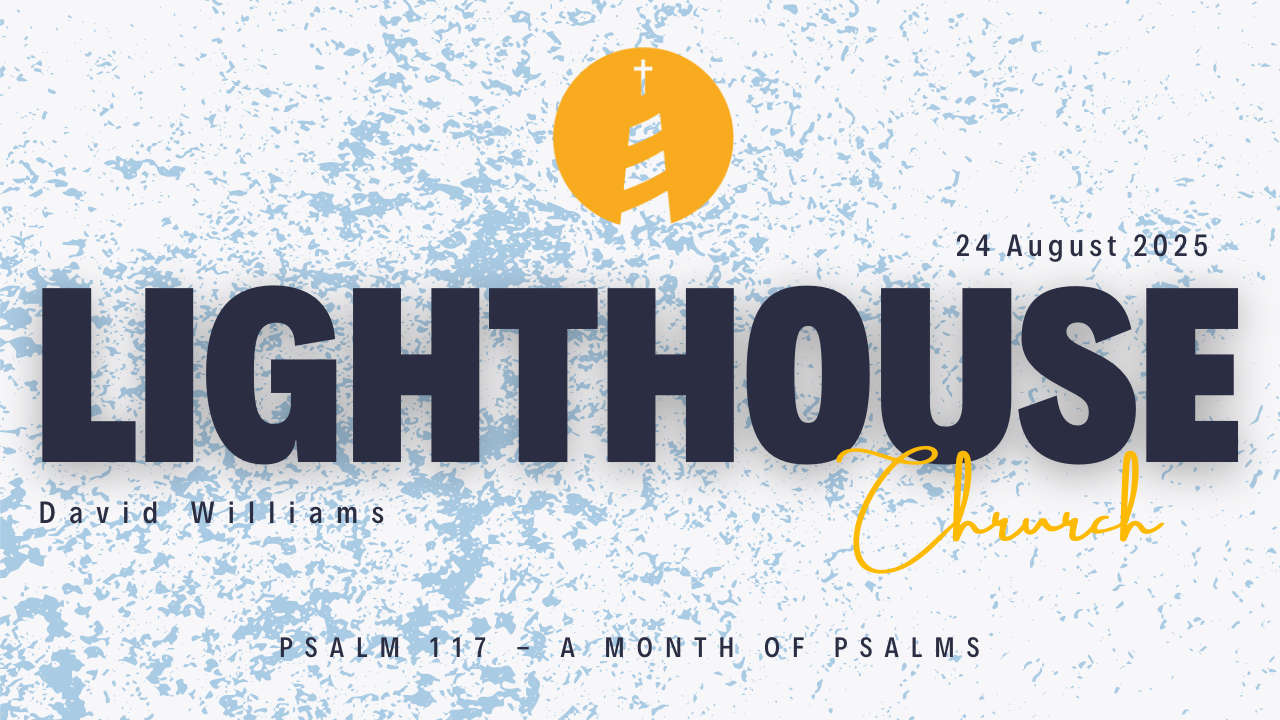Visiting speaker David Williams brings todays message, emphasising that the purpose of gathering in church is to worship, praise, and glorify God, creating an atmosphere where joy and teaching go hand in hand. He explains that through worship, we learn to express what we feel in our hearts collectively and passionately. Psalm 117, the focus of his message, breaks down easily into three parts: a call to worship, reasons for worship, and a conclusion that calls us to respond.
The psalm opens with a universal call: “Praise the Lord, all nations; extol Him, all people.” David explains that the Hebrew word for “praise” here is halal, meaning to celebrate and boast about God boldly. He also highlights that the psalm addresses everyone—no matter your nation, background, or circumstance—inviting each person to join in worship confidently. He stresses that praising God is not optional; it is a joyful command that calls for enthusiasm and exuberance.
He then shares why God deserves our praise, focusing on His steadfast love, known in Hebrew as hesed. This word captures God’s mercy, compassion, faithfulness, and active care. It isn’t just a feeling—it’s the choice of God’s will in action, reaching out to forgive, guide, and transform. Hesed reminds us that God’s love is personal, steadfast, and extended to all people, always ready to lift us out of struggles and into His care.
David emphasises the incredible power and steadfast love of God, describing it as the force that created the universe, sustains life, and governs eternity. He highlights that this same power works within believers, enabling them to partake in God’s divine nature and receive His promises. He reminds us that God’s power is paired with truth, which endures forever. Unlike human promises, which can fail, God’s word is reliable, unchanging, and always effective, giving His people confidence in His faithfulness.
He calls on us to respond with joyful, exuberant praise. He encourages us to celebrate God boldly—singing, shouting, clapping, and dancing—not out of obligation but in response to His greatness and mercy. He emphasises that worship is both corporate and personal, extending to all nations and peoples. God’s steadfast love and power are available to everyone, and we are invited to proclaim His worthiness with confidence.

